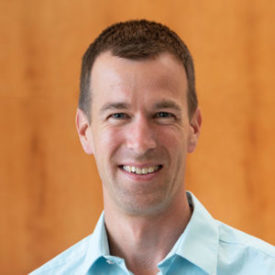
Aaron Lottes, PhD, MBA, is an Associate Professor of Engineering Practice and Director of the Online Master’s Program and Professional Education in the Weldon School of Biomedical Engineering at Purdue University. His research and teaching interests focus on the role of regulatory and clinical science to optimize the development, evaluation, and approval of medical devices and drug/device/biologic combination products. Of particular interest is global harmonization of clinical evidence development and regulatory review processes to improve patient access to safe and effective new medical products. Aaron is integrating ISCTR educational materials into the curriculum to improve the training and education of both engineers and medical students in translational processes. Prior to joining the faculty at Purdue, Aaron was Director of Regulatory Science at Cook Medical where he focused on development and approval of drug eluting devices for the treatment of peripheral artery disease and the collection and use of real-world evidence to support product evaluation and clinical decision making. Aaron holds a PhD in Biomedical Engineering from Purdue University.
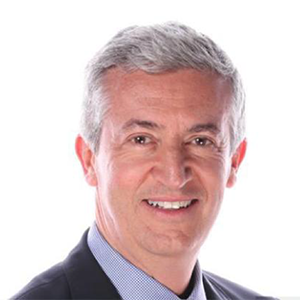
Alex Abizaid, MD, is currently the Director, Interventional Cardiology at InCor, University of Sao Paulo and visiting professor of Medicine at Columbia University, New York
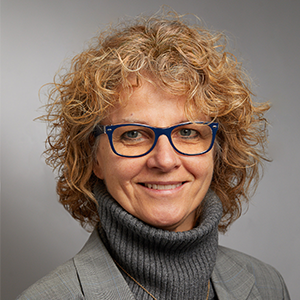
Alexandra J. Lansky, MD, is Professor of Medicine in the section of Cardiology at the Yale School of Medicine and a practicing cardiologist at Yale-New Haven Hospital, in New Haven, CT. Dr. Lansky joined Yale in 2010 as Director of the Yale Heart and Vascular Clinical Research Program and the Cardiovascular Research Center (YCRC), which specializes in the conduct of national and international cardiovascular clinical trials with specific expertise in the evaluation of interventional devices. She most recently received a dual appointment as Chair of Cardiovascular Research at Queen Mary University in London as part of the Yale and London based Barts Heart Center transatlantic research collaboration. From 2004 to 2010 Dr. Lansky was Associate Professor of Medicine at Columbia University College of Physicians and Surgeons, Director of Clinical Services at the Center for Interventional Vascular Therapy, a practicing cardiologist at New York-Presbyterian, and Chief Scientific Officer of the Cardiovascular Research Foundation Clinical Trials Center. Prior to that she was an interventional cardiologist on faculty at Washington Hospital Center in Washington, DC, and at Lenox Hill Hospital in New York, NY.
She has dedicated her career to leading clinical and angiographic evaluations of more than 500 clinical trials in a broad range of ischemic cardiovascular therapeutic areas, including pharmacologic and interventional device trials, many of which are landmark trials in the field and/or leading to FDA approval in the United States. She has served as the principal investigator on numerous national and international imaging studies, device, DES and neuroprotection trials. Dr. Lansky has authored and coauthored over 500 academic peer-reviewed manuscripts in the fields of interventional cardiology, angiography, and women’s cardiovascular health. She chaired the American Heart Association Statement on Interventions in Women and most recently the Academic Research Consortium defining Neurologic Endpoints in clinical cardiovascular trials.
Dr. Lansky has been recognized for her clinical research contributions with several prestigious awards including: Masters of Arts Privatim from Yale University in 2017; Top Doctors in Connecticut in 2017, Thompson Reuter’s 2014 and 2016 “Most influential Scientific Minds for Clinical Medicine”; 2012 Wenger Award of Clinical Excellence in Women’s health, Visiting Professor at Fu Wai Hospital, Bejing, China and Honorary Professor, University College London.
Dr. Lansky is board certified in cardiovascular diseases. A graduate of the Medical College of Virginia in Richmond, VA, she received her residency training in internal medicine, cardiology, and interventional cardiology at Washington Hospital Center, Washington DC. Dr. Lansky is a Fellow of the European Society of Cardiology, the American College of Cardiology, and the American Heart Association.
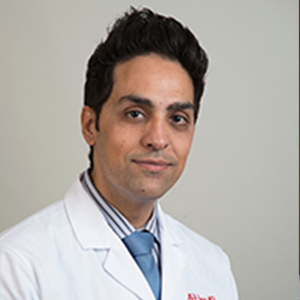
Dr. Nsair is the Director of the Heart Transplantation and Mechanical Circulatory SupportProgram at UCLA.As well, he is a member of the Interventional and structural program atUCLA.He received his MD from the University of Alberta, where he also completed his InternalMedicine residency and Cardiology fellowship. He received advanced training in AdvancedHeart Failure and Interventional Cardiology at UCLA Medical Center and a post-doctoralfellowship in Regenerative Therapies. His research interests include cardiovascularregenerative and rejuvenation therapies, as well as advanced studies of mechanical circulatorysupport devices in cardiogenic shock and novel heart failure therapies. Dr. Nsair has stronginterest in sports medicine and extensive expertise in managing cardiovascular disease inpatients of all athletic levels and currently directs the UCLA Sports Cardiology Program. Currentresearch interest focuses on implantable andwearable technologies in heart failure patients andathletics. Furthermore, his research interest involves mechanical circulatory support in patientswith advanced heart failure and cardiogenic shock.
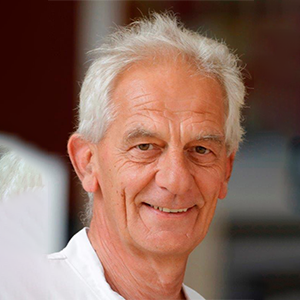
Andreas M. Zeiher: Professor, Dr. med.
D.O.B. July 3rd, 1955, in Freiburg i. Br., Germany
University Education
1965 – 1974: High school Kolleg St. Blasien (Societas Jesu)
1974 – 1981: Medical School, Albert-Ludwigs-University Freiburg
1979 – 1981: Thesis
May 1981: License to practice medicine
Scientific Career
1981 – 1983: Resident, Department of Internal Medicine, Division of Cardiology (Head: Prof. Dr. H. Just), University of Freiburg
1983 – 1986: Clinical Fellow, Department of Internal Medicine, Division of Cardiology, University of Freiburg
1986 – 1987: Research Fellowship of the German Research Foundation (DFG) at Cedars- Sinai Medical Centre, School of Medicine, University of California, Los Angeles, CA, USA
1988 – 1990: Clinical Fellow, Department of Internal Medicine, Division of Cardiology, University of Freiburg, Germany
1990: Assoc. Professor of Medicine
1990 – 1995: Director of Interventional Cardiology, Department of Internal Medicine, Division of Cardiology (Head: Prof. Dr. H. Just), University of Freiburg
Since 1995: Chairman, Department of Internal Medicine III, Division of Cardiology / Nephrology / Angiology at J. W. Goethe-University of Frankfurt, Germany
2002 – 2004: Chairman, Working Group Interventional Cardiology, European Society of Cardiology
2001 – 2006: Vice Chairman, Board of Directors at J. W. Goethe – University of Frankfurt
2008 – 2012: Co-Speaker, Cluster of Excellence Cardiopulmonary Systems
2010: Speaker, LOEWE Center for Cell and Gene Therapy (CGT)
2011: Speaker, German Center for Cardiovascular Research (DZHK) Rhine-Main
2019: President German Cardiac Society (DGK)
Awards and Honors
1991: Rudolf-Thauer-Award, German Society of Cardiology and Circulation Research
1995: Franz-Loogen-Preis, Society of Heart and Circulation Research Essen e.V.
2001: Fritz-Acker-Preis, Fritz-Acker-Foundation Bad Homburg v.d.H.
2004: CARIM-Lecture, University of Maastricht, The Netherlands
2005: HJC Swan Professorship, Cedars-Sinai Medical Center, University ofCalifornia, Los Angeles
2006: Princess Lilian Professorship, Belgian Society of Cardiology, University ofBrussels
2007: Ernst-Jung-Award for Medicine
2009: Paul-Morawitz-Award of the German Cardiac Society
2009: Princesses’ Lecture, Victor Chang Cardiac Research Institute, Sydney
2010: ISCTR Award, International Society for Cardiovascular Translational Research
2010: Stanley Davidson Lecture, Royal College of Physicians of Edinburgh, Scotland
2012: Krakoff International Lecture, Brigham and Women’s Hospital, Boston
2016: Silver Medal German Cardiac Society
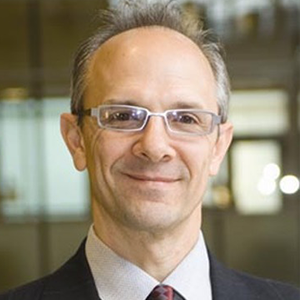
Andrew O. Brightman, PhD, is the Assistant Head for Academic Affairs and Associate Professor of Engineering Practice in the Weldon School of Biomedical Engineering at Purdue University, West Lafayette, Indiana, U.S.A. Professor Brightman attended North Carolina State University, Raleigh, North Carolina, where he received the B.S. degree in Botany and Plant Physiology. He then attended Purdue University, West Lafayette, Indiana, and received the Ph.D. degree in Cell Biology and Biochemistry. Upon completion of his doctoral studies, Professor Brightman completed two post-doctoral fellowships in Medicinal Chemistry, at Purdue University, and in Cancer Biotechnology, at Eli Lilly & Co, Indianapolis, Indiana. Professor Brightman then joined the Hillenbrand Biomedical Engineering Center as a Senior Research Scientist in Tissue Engineering where he contributed to the research and development of the tissue engineered small intestinal submucosa (SIS) technology. Professor Brightman also has worked as an independent consultant for several medical technology companies. Through these professional experiences, education and research background in analysis of signaling biomolecules and tissue engineering, Professor Brightman has gained knowledge about biomedical technology innovation and translation and built a foundation from which he is able to contribute to engineering design, regulatory affairs, and ethical practice.
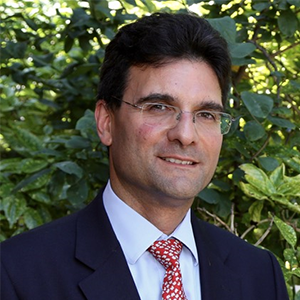
Anthony Mathur, MD, MA, MBB, Chir FRCP, PhD, is the Clinical Director for Interventional Cardiology at Barts Health NHS Trust, and Professor of Cardiology & Centre Lead for the Centre for Cardiovascular Medicine and Device Innovation, Queen Mary University of London
Prof. Mathur specialises in the management of patients with cardiovascular disease who fall outside the remit of current recognised therapies. His research interests primarily concern the role of biologics in the treatment of cardiovascular disease, and several of his programmes have gained international recognition, including an adult heart stem cell research programme, and a novel stent development programme. Prof. Mathur is currently the CI for one of the first Phase III trials of cell therapy in acute myocardial infarction. Alongside this, he is a Trustee of the Heart Cells Foundation Charity and heads their pioneering Compassionate Treatment Unit for Heart Failure. This dedicated stem cell programme is the UK’s only centre to treat compassionate heart failure patients with their own stem cells.
Within the Centre for Cardiovascular Medicine and Device Innovation, and as part of an on-going collaboration with Yale University, Prof. Mathur leads the Cardiovascular Devices Hub. The CVDHub supports collaborations between academic, clinical and industrial innovators to develop clinically and commercially viable cardiovascular devices. This novel, cross-specialty unit catalyses innovation and helps SMEs over the hurdles involved in taking new devices to human trials.
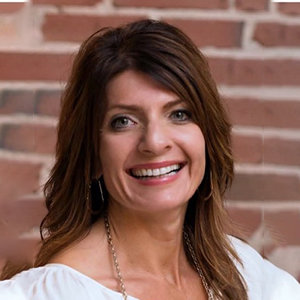
Corina Grancorvitz, PharmD, BCACP received her Doctor of Pharmacy degree from NorthDakota State University. After completing her internship, she moved to Arizona where she has followed her strong clinical passion to improve the lives of patients through various positions beginning as an ambulatory care pharmacist in a community-based diabetes center working as a central clinical team member with physicians to provide disease state education and optimize medications essential to glycemic control. She then joined the clinical pharmacy team at CIGNA Medical Group supporting anti coagulant therapy management for cardiology patients. During this time, she also worked with CIGNA national formulary for both commercial and Medicare members. Corina joined the medical affairs team at Sanofi as a Cardiovascular Medical Science Liaison in 2011 working with pharmacologic innovative therapies within the anti-arrhythmic space, anticoagulation, and lipid lowering. Currently she is a Senior MedicalScience Liaison with Amarin Pharmaceutical working within medical affairs supporting the science and research within a cardio metabolic therapy.
Dr. Grancorvitz enjoys mentoring young health care professionals and has been a preceptor with MidWestern University and University of Arizona School of Pharmacy. She is an active board member with TwinEpidemics, a non-profit organization diligently working to quell the epidemic of diabetes and heart disease among ethnic communities. She also helps facilitate local health screenings for pharmacy students and is an active supporter of the ACC Women inCardiology chapter in AZ.
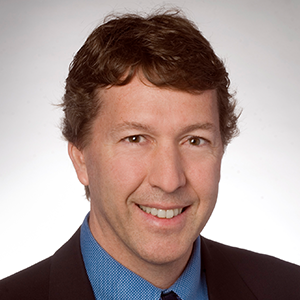
David Reuter MD, PhD, FAAP has 25 years of experience as a physician innovator.
In 2000, he started Cardiac Dimensions. After leading the team to conceptualize and develop a novel cardiac implant for patients with heart failure and mitral regurgitation, he developed and implemented the clinical trial strategy to test the safety and effectiveness of the novel implant. The therapy has received CE Mark regulatory approval and is in use worldwide.
In 2014 Dr. Reuter was appointed Director of Cardiac Innovations at Seattle Children’s Hospital. He is funded by the Gates Foundation to explore how renal venous outflow obstruction causes a renal compartment syndrome leading to both preeclampsia and obesity-related hypertension.
In addition to his clinical practice, Dr. Reuter currently serves as a mentor and strategic advisor for a diverse group of teams innovating solutions for tricuspid regurgitation, decompensated heart failure, and heart failure with preserved ejection fraction.
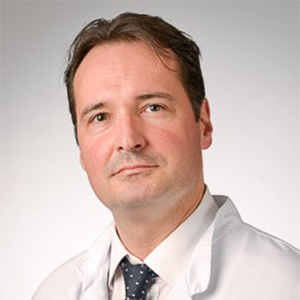
Dr. Didier Locca, MD, FACC, FESC is a swiss cardiologist with a subspecialty in interventional cardiology and cardiac MRI. He trained in the UK and CH. He is currently lecturing at EPFL (Swiss Institute of Technology Lausanne). EPFL is Europe’s most cosmopolitan technical University. Didier Locca is also Senior Lecturer at Queen Mary University London and honorary Consultant at Barts Heart Centre, NHS, London. He is involved in several translational research projects at an international level. Locally he is the founder of cardiovascular center Lausanne (CVCL) and the immediate past president of the swiss french cardiology section (canton Vaud).
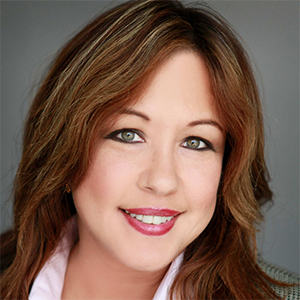
Elsa Chi Abruzzo, RAC, FRAPS is an executive with a successful 30+ years in regulatory, quality, clinical, engineering and manufacturing at Medtech and Biotech companies innovating breakthrough technologies such as: therapy enabling precision delivery systems, transcatheter heart valves (TAVR), implantable biomaterials, surgical adhesives, embolic agents, cardiovascular and neurovascular catheters and stents, atrial fibrillation ablation devices, LAA closure devices, neuromodulation devices, orthopedic navigation systems, microinvasive spinal implants, hemostatic devices, hydrocephalus shunt systems and IVD point of care analyzers.
At Cygnus Regulatory, her international startup clients span a variety of medical disciplines. Prior to staring Cygnus in 2008, Ms. Abruzzo worked at Baxter, Cordis JNJ, CryoLife, Percutaneous Valve Technologies (acquired by Edwards LifeSciences), AtriCure, Sapheon (acquired by Covidien/MDT) and PTS Diagnostics (acquired by Sinocare). She is regulatory affairs certified (RAC) and a Regulatory Affairs Professional Society Fellow (FRAPS).
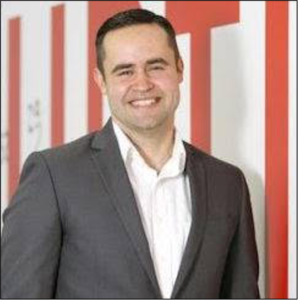
Eric Richardson, PhD, is an Associate Professor of the Practice in Biomedical Engineering at Duke University and the Director of Duke Design Health. His research and teaching interests focus on medical device design and innovation in global markets. Richardson recently transitioned from Rice University, where he was the Founding Director of the Global Medical Innovation Program, which develops and implements medical technology in emerging markets. He was also the Associate Director of the Texas Medical Center Biodesign Fellowship, a program that offers venture formation curriculum to create digital health and medical device startups. Prior to Rice, he was a Principal R&D Engineer at Medtronic in California, where he developed transcatheter heart valves that currently serve over 100,000 patients worldwide. Richardson has several publications, patents and book chapters related to cardiac medical devices, and is involved with several startups.
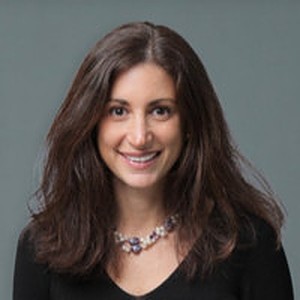
Gabrielle Gold-von Simson, MD, MSc received her MD and MSc (Clinical Investigation) from the NYU Grossman School of Medicine and is an Associate Professor of Pediatrics. Dr. Gold-von Simson is the Medical Director of the Pediatric Acute Care Unit at the Hassenfeld Children’s Hospital at NYU Langone, and she is the Director of the NYU CTSI’s Clinical Research Center and Patient Clinical Interactions Core. Her research interests and experience include translational research as well as educational research. Dr. Gold-von Simson is actively involved in the educational programs at NYU, and she serves as the Program Director for the Health Innovations and Therapeutics Program as well as Course Director for Graduate level Courses in Drug Discovery and Development.
Previously, she trained at NYU and Bellevue Hospitals as a Pediatric intern, resident, and chief resident and was an NIH K30 awardee as a junior faculty member. She is the past PI of an NIH/NIDDK educational grant to promote training and education in the area of drug discovery/development, a successful program that integrated students from several NYU graduate programs. She is the current PI of an NIH/NIDDK R25 educational grant to promote training in biomedical entrepreneurship and the translation of science. Dr. Gold-von Simson is a section reviewer for NIH/NIDA UE5 grant: Research Education Course in Product Development and Entrepreneurship of Life Science Researchers. She also serves as a director at large and board member for the Association for Clinical and Translational Science (ACTS). She sits on the scientific advisory board for publicly traded companies (Biotechnology and Devices) and serves on the NYUGSOM’s Faculty Council, the NYU C-FSC Senate, the NYU sexual misconduct committee, and the NYU Diversity, Equity, and Inclusion Committee and Workgroup.
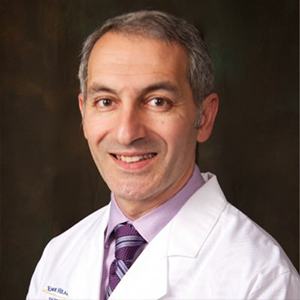
Habib Samady, MD is professor of medicine and director of interventional cardiology at Emory University School of Medicine. He was trained in general cardiology, nuclear cardiology and interventional cardiology at Yale University School of Medicine from 1994 to 1999. Dr. Samady was assistant professor of medicine at University of Virginia from 1999-2003 and clinical associate professor of medicine at Eastern Virginia Medical School from 2003-2005. He joined the Division of Cardiology at Emory University in 2005. In 2009, he became professor of medicine and in 2011, director of interventional Cardiology at Emory University. He has supervised and participated in the training of more than 60 interventional cardiology fellows and more than 100 general cardiology fellows. He has received several outstanding teaching awards.
Dr. Samady has an actively funded clinical and translational research program (including National Institute of Health, the American Heart Association as well as industry sponsored studies) to investigate 1) hemodynamic mechanisms associated with progression of human coronary atherosclerosis 2) evaluation of pharmaceutical agents for treatment of coronary microvascular disease, endothelial dysfunction, coronary vasospasm and non-obstructive atherosclerosis 3) biomechanics of permanent and bioresorbable coronary vascular devices. These programs involve collaborations with Biomedical Engineering at Georgia Institute of Technology, Emory Vascular Biology and Emory Mathematics and Computer Science.
Dr. Samady is Deputy Editor of JACC Cardiovascular Interventions, is on the editorial board of numerous cardiovascular journals, and is extensively published in the fields of intravascular imaging, coronary physiology, atherosclerosis assessment, and stent biomechanics. His clinical interests include complex coronary disease, high risk percutaneous coronary interventions, chronic total occlusions, and invasive evaluation of coronary microvascular disease.
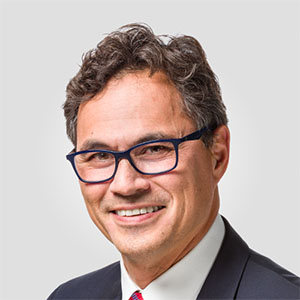
Hendrik Tevaearai Stahel, MD, graduated from the University of Lausanne in 1986, accomplished his training in General Surgery (1996), then Cardiovascular Surgery (2002), while continuously being active in laboratory (Swiss Institute for Experimental Cancer Research, Duke University) and clinical research. In 2006, after 18 years of practicing surgery, he decided to stop his clinical activity in order to develop his own R&D unit, as part of the Clinic for Cardiovascular Surgery at the University Hospital in Berne
In 2008, Dr. Stahel founded the start-up company Swiss Cardio Technologies AG and developed a new low-volume single-shot cardioplegic solution (Cardioplexolä). In 2015, they successfully completed the pivotal phase 3 clinical trial and are now in the final stage of the registration process, hoping to get market approval for 10-13 European countries in 2021.
In 2016, Dr. Stahel decided to end his position at the University hospital in Berne, with the motivation to open his future to new horizons. With that in mind, he created TestaLogic GmbH, a consulting company through which he intends to contribute with his broad (clinical, academical, R&D, managerial and entrepreneurial) experience, to the development of innovative companies. In parallel, he created Stahel, simply champagne GmbH, a company importing and distributing grower natural champagnes in Switzerland.
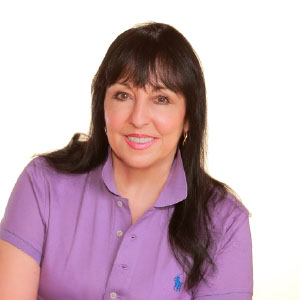
Ileana L. Piña, MD, MPH, is a Professor of Medicine, at Wayne State University and Clinical Professor at Central Michigan University. Dr. Piña also serves as Senior Fellow to the Food and Drug Administrations’ Center for Devices and Radiological Health. Dr. Piña earned her undergraduate degree in chemistry from the University of Miami in Florida. She completed her medical degree and cardiology fellowship at the University of Miami School of Medicine; an internal medicine residency at the University of South Florida Tampa, where she was Chief Resident; and fulfilled a surgery internship at the University of Miami Hospitals and Clinics. She earned a master’s degree in public health from Case Western Reserve University School of Medicine in Cleveland, Ohio while pursuing a VA Quality Fellowship.
Dr. Piña’s research interests include transition of care in heart failure patients, and the role of natriuretic peptide–guided management for patients hospitalized for heart failure, biomarkers of myocardial stress and fibrosis in chronic heart failure, and heart failure differences by sex. She has been actively involved in gender, racial and ethnic issues in the health care delivery. She is the author/co-author of more than 250 publications. She is currently the Chair of the FIT committee of the AHA and on the Board of Directors National AHA.
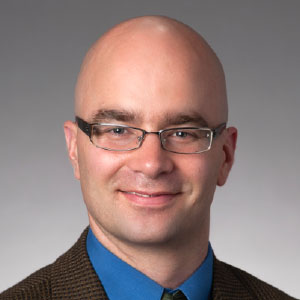
John Abraham, PhD, is a Professor of thermal sciences at the University of St. Thomas School of Engineering, MN, and works at the intersection of engineering and medicine. He has extensive experience in numerical modeling of medical devices and physiology – a tool that is used to develop medical devices and the ensure their safety and efficacy. Among his special skills are blood flow dynamics, flow through deforming arteries, injection of therapeutic agents into blood streams, and the operation of implants. He has produced approximately 350 studies, including journal papers, conference presentations, patents, books and book chapters.
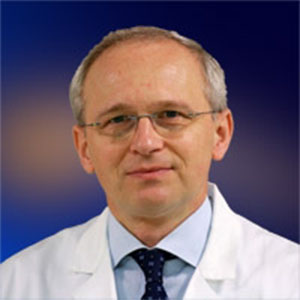
Jozef Bartunek, MD, PhD, is the Associate Director at Cardiovascular Center and Chairman of the Cardiovascular Research Centre, Aalst, OLV Hospital, Belgium. After clinical and interventional training, he served as a Fogarty International NIH fellow at Beth Israel Deaconess Medical Center, Harvard Medical School Boston, MA. He is a clinician with expertise in interventional cardiology and heart failure. He pursues his research interests in clinical translational research in heart failure and structural heart disease including regenerative and device-based interventions. His research and innovation are driven by the experience from the Global Faculty in Training Program completed at Stanford Biodesign. He is a visiting Professor of Medicine at Catholic University Leuven, Belgium. He published more than 230 per reviewed articles and serves as editor in several cardiovascular journals.
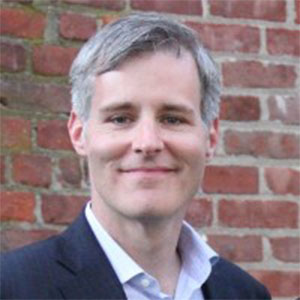
Kevin J. Croce, MD, PhD, is an interventional cardiologist and the director of the Chronic Total Occlusion Complex Percutaneous Coronary Intervention Program at Brigham and Women’s Hospital (BWH). He is an assistant professor of medicine at Harvard Medical School (HMS) who also directs the BWH Translational Discovery Laboratory which is a centralized research facility that uses state-of-the-art technology to perform preclinical testing of promising therapies and medical devices.
Dr. Croce received his medical and Ph.D. degrees from Tufts University School of Medicine. He completed an internal medicine residency, a cardiology fellowship and an interventional cardiology fellowship at BWH. Dr. Croce is board certified in internal medicine, cardiovascular disease and interventional cardiology.
His clinical interests include advanced treatments for obstructive coronary artery disease (CAD), and optimization of antithrombotic and antiplatelet pharmacotherapy. The author of over 100 peer-reviewed publications, Dr. Croce’s research focuses on understanding the molecular pathobiology of atherothrombotic (CAD) and on identifying new targets for CAD treatment. His research has received support from the National Institutes of Health.
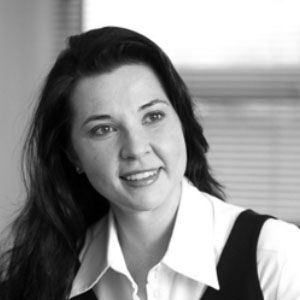
MacKenna Roberts is an English-qualified lawyer practicing in life sciences regulation and intellectual property (IP) dispute resolution. She advises clients on the commercialization of biomedical technologies at the frontiers of medical innovation with a specialization in the translation of cell and gene therapies, genetic testing and digital health technologies. She has extensive experience in private practice, academia, consultancy and, most recently, as in-house General Counsel to Choice Telemed Ltd, a specialist medical imaging company that supports drug discovery trials. She regularly presents and publishes on the medico-legal and bioethical aspects of how the law should govern cutting-edge therapies, and her expertise has been recognized by high-impact journals such as Nature Biotechnology.
MacKenna holds a master’s degree in Medical Law and Ethics from King’s College London. She trained and practiced as a technology dispute resolution litigator at a top London 50 IP practice. She was lead IP advisor to the Centre for the Advancement of Sustainable Medical Innovation (CASMI), a joint venture between Oxford University and University College London focused on accelerating therapies to market in Europe. She continues to advise several academic societies and biotech start-ups, including as legal counsel on the governing board of TERMIS Global (Tissue Engineering Regenerative Medicine International Society). MacKenna is passionate about empowering scientists and physicians with the knowledge and vision they need for their innovations to reach patients successfully.
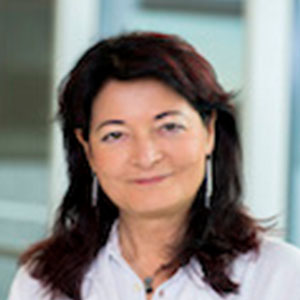
Mariann Pavone-Gyöngyösi, MD, PhD, FESC was born in Hungary, Austrian citizen since 2002. Education (physician, professor in internal medicine and cardiology) at the Albert Szent-Györgyi Medical University, Szeged, Hungary, Ph.D. in 1995. Habilitation at the Medical University of Vienna (Cardiology) in 2002. Fellow of the European Society of Cardiology 2006. Postdoctoral Fellowships: Hungarian Eötvös Fellowship, Tempus Individual Mobility Grant, Pfeiffer Fellowship at the Medical Univ. of Vienna, Dept. Cardiology, INSERM Fellowship, INSERM U-99, Creteil, France, Training and Research Fellowship of the European Society of Cardiology, Medical Univ. of Vienna. Present position: professor at the Dept. Cardiology, Medical University of Vienna, Austria, leader of the postgraduate education of the Dept. Cardiology MUW, leader of the Exp. and Clinical Invasive Card. Laboratory, vice president of the Experimental Working Group of the Austrian Society of Cardiology, nucleus member of the ESC Working Group of the Cell Biology of the Heart; and member of the EU-CARDIOPROTECTION and CardioRNA EU COST organizations. Most important awards: Pfeiffer-Competition Austria, 1. Price, Austrian Society of Cardiology 1. Price, Billroth Preis of the Österreichisches Ärztekammer. Most important grants: LifeValve, Fibro-targets, Science, ReGenHeart, CresPace EU projects, numerous unrestricted research grants and contracts for experimental invasive cardiology projects. Research and clinical interest: ischemic heart disease, interventional cardiology, cell- and gene-based therapy, heart failure, cardiotoxicity, H-index: 34, Original papers (per reviewed): 205 (172 in PubMed), impact factor 1087, citation 3913 (March 2020).
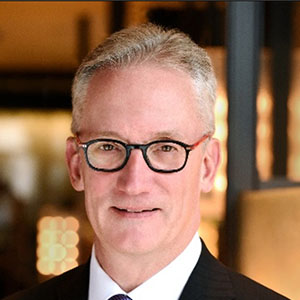
Mark D. Carlson, MD, MA is a cardiologist and Adjunct Professor of Medicine at the Case Western Reserve University (CWRU) School of Medicine. Dr. Carlson joined St. Jude Medical in November 2006, serving as Chief Medical Officer and Senior Vice President, Research and Clinical Affairs, in the Implantable Electronic Systems Division until 2013 when he was appointed Corporate Chief Medical Officer and Vice President. Dr. Carlson joined Abbott as Division Vice President and Chief Medical Officer, Cardiac Arrhythmias and Heart Failure in 2017 when the company acquired St. Jude Medical, and he retired in 2020.
Dr. Carlson received his M.D. from the University of Kansas, an M.A. in public policy from Duke University, and a B.S. in Biology from Kansas State University. He trained in internal medicine at University Hospitals of Cleveland and CWRU and in cardiology and cardiac electrophysiology at the Massachusetts General Hospital and Harvard University. He joined the faculty of CWRU in 1988 where he was professor of medicine with tenure until he joined St. Jude Medical in 2006. While at CWRU, he held several leadership positions including Vice Chairman, Department of Medicine responsible for Clinical Programs. His research on arrhythmias and cardiac neural control has resulted in over 200 publications. In 2003, as a Robert Wood Johnson Fellow on Senator Orrin Hatch’s Senate Judiciary Committee, Dr. Carlson worked on the Medicare Prescription Drug, Improvement and Modernization Act and the Cord Blood Stem Cell Act. Thereafter, he returned to CWRU as associate vice president for government relations and led advocacy efforts that established the National Center for Regenerative Medicine. At Abbott, Dr. Carlson led a global team responsible for the strategy and conduct of hundreds of clinical trials on novel medical devices including the world’s first leadless pacemaker, the smallest artificial heart valve for neonates, the first quadripolar pacemaker for heart failure, closure devices to prevent stroke, and left ventricular assist devices, to name a few. He is an inventor of five United States Patents.
Dr. Carlson served on the FDA’s Devices Dispute Resolution Panel, the NCDR ICD registry steering committee, and chaired the Heart Rhythm Society’s (HRS) Health Policy Committee, the American College of Cardiology Electrophysiology Committee, the HRS/FDA Policy Conference on Device Performance, and the HRS task force on device performance policies and guidelines and the Medicare Evidence Development & Coverage Advisory Committee. He served on the board of directors of the Medical Device Innovation Consortium and chaired that organization’s Clinical Science and Medical Officer Steering Committee.
Dr. Carlson is a board member and past president of the West Los Angeles Council of the Boy Scouts of America, a trustee of the Kansas State University Foundation, and a scientific advisory board member of the International Society for Cardiovascular Translational Research. He received Scouting’s Silver Beaver and Distinguished Eagle Scout Awards. In 2020, Dr. Carlson was appointed Alumni Fellow for the Kansas State University College of Arts and Sciences.
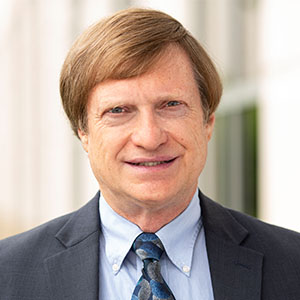
Neal E. Fearnot, PhD is President of Cook Advanced Technologies, whose mission is to develop cutting edge medical products and therapies for patients, from concept development to product commercialization. Concurrently, he serves as President of MED Institute, a full service R&D company supporting clients in bringing their new medical products and technologies to market, as well as Vice President of Cook Group Incorporated, focusing on the potential of new technology and regulatory affairs policy worldwide. Dr. Fearnot is founding President of MED Institute (1983), Cook Biotech (1995) and Cook AT (2009). He has been active in initiatives to promote global harmonization of medical device approval regulations. He is an author on over 150 scientific journal articles and abstracts, and is an inventor on over 120 U.S. and foreign patents. Dr. Fearnot holds a Ph.D. in Electrical/Biomedical Engineering from Purdue University
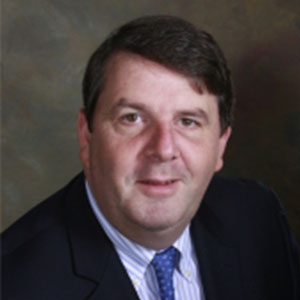
Nic Chronos, M.D., has over 20 years of experience as a senior cardiologist and researcher. Dr. Chronos is the President and CEO of Saint Joseph’s Translational Research Institute (SJTRI) and an Adjunct Professor of Medicine at Duke University Medical Center. He currently oversees preclinical trials and clinical research at SJTRI. Dr. Chronos is a renowned researcher in the areas of stem cell therapy and cardiovascular regeneration and has extensive experience in the development and assessment of interventional cardiology devices. In June 1999, Dr. Chronos co-founded ACRI, a non-profit organization dedicated to promoting and improving the comprehensive care of the cardiovascular patient. ACRI was acquired by St. Joseph’s Hospital of Atlanta and became the St. Joseph’s Translational Research Institute. Dr. Chronos was named the Director of Research at the Andreas Gruentzig Cardiovascular Center at Emory University Hospital in 1997.
He is a frequent international lecturer and an author of numerous publications. Dr. Chronos is a Fellow of the Royal College of Physicians (London), Fellow of the American College of Cardiology, Fellow of the European Society of Cardiology, and Fellow of the American Heart Association. He sits on numerous scientific and medical Advisory Boards and has served as Study Section Chair, SBIR, Cardiovascular Science, for the National Institutes of Health and on the Data Safety Monitoring Boards for numerous clinical trials. In addition, Dr. Chronos has co-founded several successful biotechnology companies.
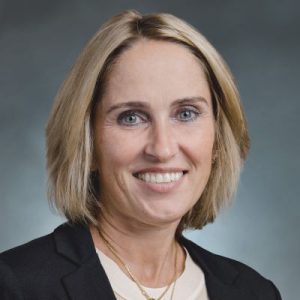
Olga Imas, PhD is a Professor of Biomedical Engineering at the Milwaukee School of Engineering, where she teaches courses in medical imaging, digital signal processing, electrical circuit theory, and medical device regulation. Dr. Imas is active in medical device consulting in areas of physiological signal processing and medical imaging, as well as in medical device regulation, with a particular focus on medical devices involving deep learning and generative AI. Her clinical areas of interest include stroke and ischemic disease, Alzheimer's Disease and dementia, traumatic brain injury, and anesthesia monitoring.
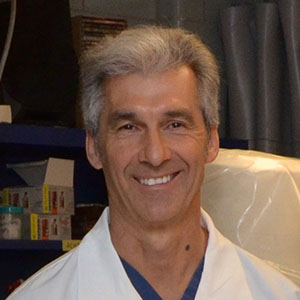
Paul A. Iaizzo, PhD FHRS is a Professor in the Departments of Surgery, Integrative Biology & Physiology and the Carlson School of Management, at the University of Minnesota. He also serves on the graduate faculties in Biomedical Engineering, Neuroscience, Integrative Biology & Physiology, Biological Science, Bioinformatics and Computational Biology and Mechanical Engineering. He is the Director of the Malignant Hyperthermia Diagnostic Center and Medtronic Professor of Visible Heart® Research. Additionally, he is the Associate Director and Medtronic Chair of the Institute for Engineering in Medicine, also at the University of Minnesota. He earned both MS and PhD degrees (Focus: Physiology/Neurophysiology) from the University of Minnesota.
His main research focus is translational systems physiology, where his research group does a broad range of studies. The Visible Heart® Laboratories are well known for their novel imaging techniques of functional cardiac anatomies and device testing within large mammalian hearts, including human: see the Atlas of Human Cardiac Anatomy (https://www.vhlab.umn.edu/atlas/). Other research areas include: cardiac pacing and ablation, skeletal muscle pathophysiology, thermoregulation, black bear hibernation, wound healing, 3D computational modeling and printing and educational uses of virtual reality. In 2002, he was acknowledged as a “Distinguished University Teaching Professor”. Since 1990, he has trained over 200 graduate students, postdoctoral fellows, and medical students in his laboratories.
Dr. Iaizzo, has authored more than 250 original articles, over 100 book chapters, edited 5 books, and is on numerous patents (both US and European) related to cardiac and thermoregulatory devices. In 2012, he was named to College of Fellows of the American Institute for Medical and Biological Engineering (AIMBE) for “outstanding contributions to research and education in translational systems physiology and cardiovascular engineering”. In 2015 he was named a Fellow of the Heart Rhythm Society and in 2016 was made a Senior member of IEEE.
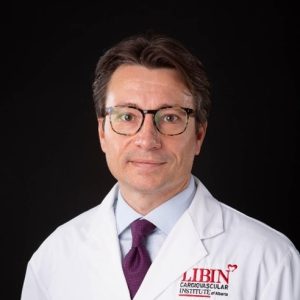
Paul W.M. Fedak, MD PhD FRCSC FAHA, is a cardiac surgeon, translational scientist, and the director of the Libin Cardiovascular Institute based in Calgary.
Through a career rooted in discovery, precision, and mentorship, Dr. Fedak strives to create spaces where science advances, people flourish, and bold leadership reshapes what’s possible in healthcare and beyond.
Dr. Fedak completed his MD and PhD at the University of Toronto, and went on to train in cardiac surgery (FRCSC) and pursue fellowship training in complex heart failure and valve surgery at Northwestern University. His research has led to innovations in sternal closure, tissue regeneration, and the surgical management of bicuspid aortic valve disease and he has authored 240+ peer-reviewed publications with over 20,000 citations.
Dr. Fedak leads the Campbell Family Translational Research Program, where he helps train the next generation and develop biomaterials and tissue-engineered solutions for cardiovascular disease.
As Director of the Libin Cardiovascular Institute and a former clinical department head, Dr. Fedak leads multidisciplinary efforts that advance research, education, and patient care for more than 2 million Canadians.
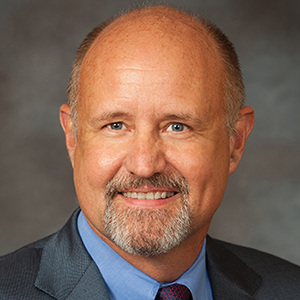
Philip B. Adamson, M.D., MSc, FACC, FRCP (Ed) is Chief Medical Officer and Divisional Vice-President for the Heart Failure business unit of Abbott Medical Devices. He contributes to the global development of Abbott’s heart failure programs, including cardiac resynchronization therapy, the CardioMEMS HF™ system and the Mechanical Circulatory Support portfolio, including CentriMag and the HeartMate 3™ Left Ventricular Assist System.
Dr. Adamson joined Abbott (formerly St. Jude Medical) in 2015. His clinical interests focus on development of more efficient and effective disease management systems for patients with chronic heart failure, specifically focusing on remote monitoring of physiologic signals from implanted devices.
Prior to joining Abbott, Dr. Adamson developed heart failure disease management programs at the University of Oklahoma and the Oklahoma Heart Hospital. He served as the principal investigator or on the steering committees of several large randomized clinical trials. He was the co-principal investigator of the CHAMPION Trial, which demonstrated the efficacy and safety of the CardioMEMS HF System, leading to FDA approval of the system in 2014.
Dr. Adamson received his M.D. and M.Sc. from the University of Oklahoma Health Sciences Center. Upon completion of his Cardiology fellowship he joined the faculty at the University of Oklahoma and received NIH funding to develop a novel model of ischemic heart failure that served to investigate the autonomic mechanisms of sudden cardiac death.
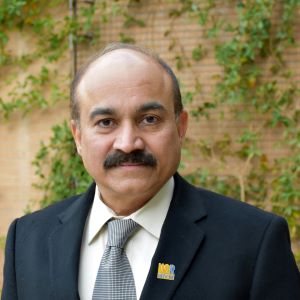
Dr Ramdas G. Pai MD, FRCP, FACC is a Tenured Professor and Chairman of Medicine and Clinical Sciences at University of California Riverside School of Medicine, California, USA. He is also the Founding director of UCR cardiovascular fellowship training program. He is board certified in internal medicine, cardiology, echocardiography, Cardiac CT and adult congenital heart diseases. Before this, he was also a Professor of Medicine at Loma Linda University School of Medicine and University of Southern California and functioned as director of echocardiography, cardiac imaging, valve program and cardiology fellowship training programs.
He has extensive scholarly activity and teaching at local and national levels. He coproduced TEE teaching videos for the American College of cardiology / Heart House in 1994. He has published 5 books in cardiology and echocardiography, 200 papers, 58 book chapters and 172 abstracts. He is an editorial board member of multiple cardiology journals.
He is a founding member of Society of Cardiac MR (SCMR) and a Vice President of International College of Angiology. He is also a Fellow of American College of Physicians, Royal College of Physicians (Edinburgh, UK), American College of Cardiology, International College of Angiology and American Society of Echocardiography.
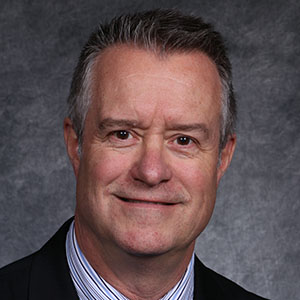
Robert Kohler, MSME, is currently the Director of Research and Development at Scanlan International and has more than 25 years in the medical device industry. He has been involved with ISCTR for numerous years developing educational materials for cardiovascular translational research, collaborating with medical device companies and conducting pre-clinical research. His diverse experience encompasses product development, clinical research, manufacturing, and operations. Robert has assisted several medical device companies in developing innovative cardiovascular and peripheral vascular interventional systems, catheter based biologic delivery systems, minimally invasive spinal devices, orthopedic products and surgical instruments. Robert has also held positions at Cardiovascular Systems, Alexandria Research Technologies, Disc Dynamics, HeartStent and St. Jude Medical. Robert received his bachelor’s degree in mechanical engineering and business management, as well as a master’s degree in manufacturing systems, from the University of Minnesota.
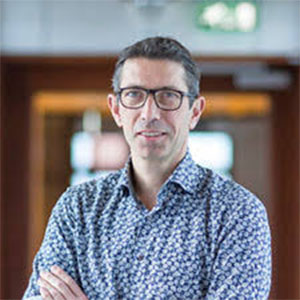
Steven Chamuleau, MD, PhD, FESC, is a Professor of Cardiology at Amsterdam University Medical Center, Netherlands, and appointed the head of the Department of Cardiology at Amsterdam UMC since 2019. Prior, he was a staff Cardiologist at UMC, Utrecht; Cardiologist at AMC, University of Amsterdam; and research fellow at the Institute of Molecular Cardiology, University of Louisville, KY. He was trained at the University of Amsterdam (MD and PhD track, and his specialization Cardiology). He started his career at the UMC Utrecht, and his interest as clinical cardiologist is advanced cardiovascular imaging and valvular disease with focus on tertiary care for complicated valvular disease (multi valve pathology, rheumatic and carcinoid heart disease, endocarditis etc). His team investigated how to apply advanced imaging techniques to support diagnosis, such as 3D solutions, exercise echocardiography and PET-CT. He was involved with percutaneous approaches for left sided valvular disease (eg. TAVI, Mitraclip, paravalvular leakage closure, PBMV). He has participated in several multicenter clinical trials (eg cell therapy for ischemic heart disease) and initiated the multicenter Dutch AMR trial (Asymptomatic Mitral Regurgitation; www.dutchamr.nl).
His translational research interest is centered around preclinical modeling, and cardiac regeneration. Together with others, partners (Netherlands Heart Institute, Open Science Platform, Cyrcle and TACTICS) effort is put into improving quality of preclinical translational research by initiating systematic review, meta-analysis and promoting pre-registration. To this end, they initiated the platform www.preclinicatrials.eu. In view of innovation and valorization, his group investigated routes to optimize cell/compound delivery to the myocardium by applying biomaterial techniques (in collaboration with TU Eindhoven), and development of an interventional MRI strategy. Also, he is co-founder of the UMCU spin-off company CART-Tech (www.cart-tech.com) that offers technical solutions to improve cardiac treatment planning (e.g. regenerative medicine and CRT). Furthermore, he is nucleus member for the ESC working Group CARE (Cardiovascular Regenerative and Reparative Medicine).
He is appointed as the head of the department Cardiology at Amsterdam UMC since October 2019.
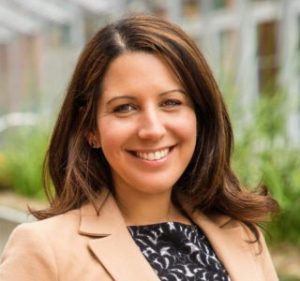
Tara Sklar, JD is Professor of Health Law and Director of the Health Law & Policy Program at the University of Arizona, where she launched and oversees multidisciplinary, online, graduate and undergraduate programs in health law. These programs include over twenty courses in Aging Law & Policy, Health Information Privacy & Data Security, Health Law for Health Professionals, and Regulatory Science where she works with industry partners and eight University of Arizona Colleges across Business, Engineering, Pharmacy, Public Health, Medicine, Nursing, Science, and Social & Behavioral Sciences.
Sklar’s research focuses on how laws and policies influence the health and well-being of older adults. Her work has appeared in the following peer reviewed journals: New England Journal of Medicine, Journal of Empirical Legal Studies, American Journal of Law & Medicine, and Jurimetrics, among others. She is an Associate Editor for the Global Biosecurity Journal and a regular contributor to The Conversation, PBS, NPR, and Harvard Law School’s Petrie-Flom Center Bill of Health. Sklar has worked for health systems and government entities, including Ascension Health, MD Anderson Cancer Center, and the Food and Drug Administration, on a range of legal, regulatory, and ethical issues. She graduated magna cum laude from Tulane University and has a dual degree Juris Doctor/Master of Public Health from the University of Houston and the University of Texas.
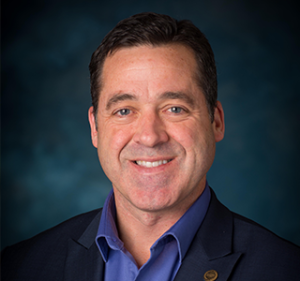
Dr. Tim Laske is currently the Vice President of Research & Business Development for the AF Solutions Business at Medtronic. He is a Medtronic Bakken Fellow and Technical Fellow and a Fellow of the American Institute for Medical and Biological Engineering. His previous roles at Medtronic include VP of Product Development for AF Solutions, Senior Product Development Director for Heart Valves, Senior Program Director for Transcatheter Heart Valves, Technology Director for Cardiac Rhythm Therapy Delivery, and various technology management and design engineering positions. Prior to his 28-year tenure at Medtronic, he worked as a Design Engineer at Ford Motor Company in Crash Safety and Advanced Vehicle Systems Engineering.
He has a B.S. degree in both Biological Sciences and Mechanical Engineering from Michigan Technological University. He received his M.S. in Mechanical Engineering from the University of Michigan, Ann Arbor, and his Ph.D. in Biomedical Engineering from the University of Minnesota where he serves as an Adjunct Associate Professor in the Department of Surgery. His doctoral research was centered on the use of isolated working hearts in the design of medical devices and in parallel co-founded the Visible Heart® Laboratory (www.visibleheart.com). In addition to medical device design and cardiac physiology, his research interests include the study of hibernation physiology in wild black bear and brown bear populations. He has more than 85 U.S. patents and numerous publications in the fields of Biomedical Engineering and Wildlife Biology/Ecology.
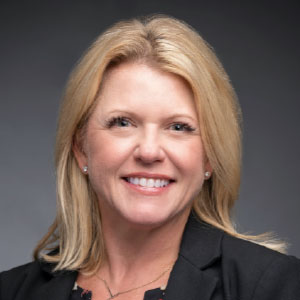
Tonya is an accomplished and respected leader in the fields of healthcare economics, reimbursement, and market access. With over twenty-five years of experience and expertise in the healthcare arena, she possesses a global understanding of healthcare payment and delivery system ecosystems for new and emerging technologies. She currently holds the position of Executive Vice President at PRIA Healthcare where she’s a member of the leadership team and head of the Reimbursement, Value Generation and Market Access (RVMA) services.
Prior to joining PRIA, Tonya held leadership and consultant positions within prominent organizations, including Johnson & Johnson, Quorum Consulting (now Guidehouse) and MCRA, and is recognized as a strategic consultant with an understanding of what it takes to successfully establish market access and adoption for new and innovative medical technologies.
Throughout her career, Tonya has consulted with several new medical technologies including implantable devices, digital health, diagnostics, DME and molecular diagnostics, across multiple disease areas, including cardiovascular, neurology, electrophysiology, urology, gastroenterology, gynecology, otolaryngology, general and bariatric surgery, orthopedics, spine and pain management.
Her leadership and innovative reimbursement solutions has contributed to the establishment of new payment and coding methods, positive coverage and trusted advisor relationships with multiple stakeholders, including MedTech investors, payer partnerships and specialty societies fostering access and the adoption of new technologies within multiple countries. Tonya played a significant role in the broad market adoption of bariatric surgery, pioneering reimbursement pathways and patient access through collaborations with Johnson & Johnson government affairs, specialty societies, health technology assessments and third-party payer organizations.
Tonya is strategic, practical, and opportunistic in her approach to reimbursement and market access. With an expertise and knowledge of global macro healthcare policy trends and direct experience in tactical execution of successful market access and reimbursement strategies, her understanding of how policy is translated into practice sets her apart as a unique and innovative leader in the reimbursement field. Tonya holds an undergraduate degree from the University of Michigan in Health Policy and a Master of Public Health and Global Healthcare from the University of California Los Angeles and is frequently invited as a guest speaker on market access and reimbursement issues. Tonya serves as a judge and value framework coordinator for MedTech Innovator and is an invited guest speaker with multiple organizations.
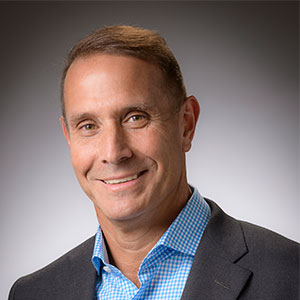
Uri Yaron is the Worldwide President for Biosense Webster, one of the fastest-growing companies within Johnson & Johnson.
Biosense Webster pioneered cardiac electrophysiology catheters more than 30 years ago and continues to lead the industry as an innovative provider of advanced cardiac diagnostic, therapeutic, and 3-D mapping tools. With its headquarters in southern CA, Biosense Webster employs more than 10,000 people. For more about Biosense Webster see biosensewebster.com.
Prior to joining Biosense Webster in 1996, Uri spent 3 years as a Member of the Technical Staff at the Micro-Physics Research Department of AT&T Bell Laboratories, Murray Hill, NJ.
Uri holds a Ph.D. degree in Physics summa cum laude from the Hebrew University of Jerusalem.

Verna Manty Rodriguez is the Executive Director of the Master in Translational Medicine, at UC Berkeley and UCSF. She also teaches Project Management and Design Control for medical devices at UC Berkeley. She received her B.S. in Mechanical Engineering and Materials Science from U.C. Berkeley. Before joining UC Berkeley, Verna spent 4 years teaching bioengineering courses at Santa Clara University and advising start-up entrepreneurs on device development and design control via her company Manty Medtech. Prior to that, she led engineering design and manufacturing teams for the development of pulmonary and cardiovascular devices including implants, grafts, Rx and Dx catheters, and delivery systems at various companies such as Edwards Life Science, Abbott Vascular and Boston Scientific. She holds three US patents.
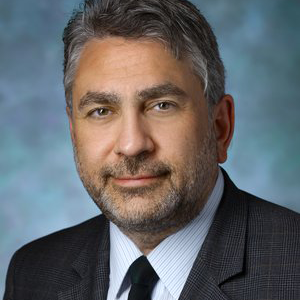
Dr. Youseph Yazdi is an assistant professor of biomedical engineering at the Johns Hopkins University School of Medicine. He holds an additional appointment in the Whiting School of Engineering at Johns Hopkins, through which he serves as Executive Director of the Center for Bioengineering Innovation and Design and Program Director of the Wallace H. Coulter Translational Research Partnership Program.
Dr. Yazdi holds a B.S. in electrical and computer engineering from Rice University, as well as an M.S. in electrical engineering and a Ph.D. in biomedical engineering from the University of Texas at Austin. He also earned an M.B.A. in entrepreneurial management from the University of Pennsylvania’s Wharton School of Business.
Prior to his arrival at Johns Hopkins, Dr. Yazdi was a corporate director in Johnson & Johnson’s Corporate Office of Science and Technology, where he was responsible for the creation and management of external and internal partnerships that funded and guided early-stage health care innovation.